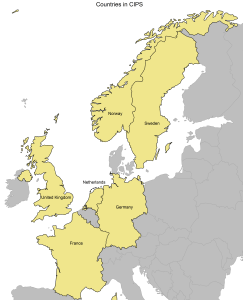Studies conducted by researchers in the Inclusive Politics project rely mainly on new, original survey data.
Sequential inquiry is a key research design strategy in the Inclusive Politics project. In a nutshell this entails starting sequences of survey experiments with exploratory tests of specific hypotheses, which is followed by an iterative process of experimental trials to push the inquiry a step further. Each sequence has a repeatable template where the format and wording are held constant. The essential feature of the design is to introduce new conditions at each step. With this protocol, researchers test if previous findings replicate and generate new insight at each trial. This is a highly efficient way of conducting research in less well-known empirical terrain.

At the center of the project is collecting high quality research data. A core data source in the Inclusive Politics project is the Norwegian Citizen Panel (the NCP). The NCP is an online survey panel run by DIGSSCORE (Digital Social Science Core facility) at the University of Bergen. PI Professor Elisabeth Ivarsflaten serves as the Scientific Director of DIGSSCORE and the NCP. Individuals above the age of 18 living on Norway have an equal chance of being invited to the NCP. All NCP data and documentation is available online for research and education purposes at the Norwegian Agency for Shared Services in Education and Research (Sikt). The panel runs three times a year and provides researchers in the Inclusive Politics project possibilities to frequently test survey items and field sequential survey experiments.
The Inclusive Politics project also collects three waves of comparative survey data from six key Western European countries, labeled CIPS (The Comparative Inclusive Politics Study). This data collection is fully financed by the European Research Council (ERC) under the European Union’s Horizon 2020 research and innovation programme (grant agreement n° 101001133, INCLUDE). With CIPS experimental sequences will be fielded comparatively, and the generalizability of the findings will be tested. CIPS includes data collection in Norway, Sweden, the Netherlands, Germany, and the UK. The project collaborates with established university-based online panels, as well as leading online survey companies to conduct CIPS. The first wave of comparative data collection takes place in the fall of 2024.
Moreover, the project also utilizes a unique data collection opportunity provided by DIGSSCORE, termed KODEM. KODEM is an infrastructure which coordinates and collects survey responses from four core actors in democracy: citizens, politicians, public administrators, and journalists. Investigating data from the Norwegian Citizen Panel, The Norwegian Panel of Elected Representatives, the Norwegian Panel of Public Administrators, and the Norwegian Panel of Journalists, researchers in the Inclusive Politics project produce novel knowledge in a broader democratic perspective.
More details on how the data is used can be found in the individual publications listed here.